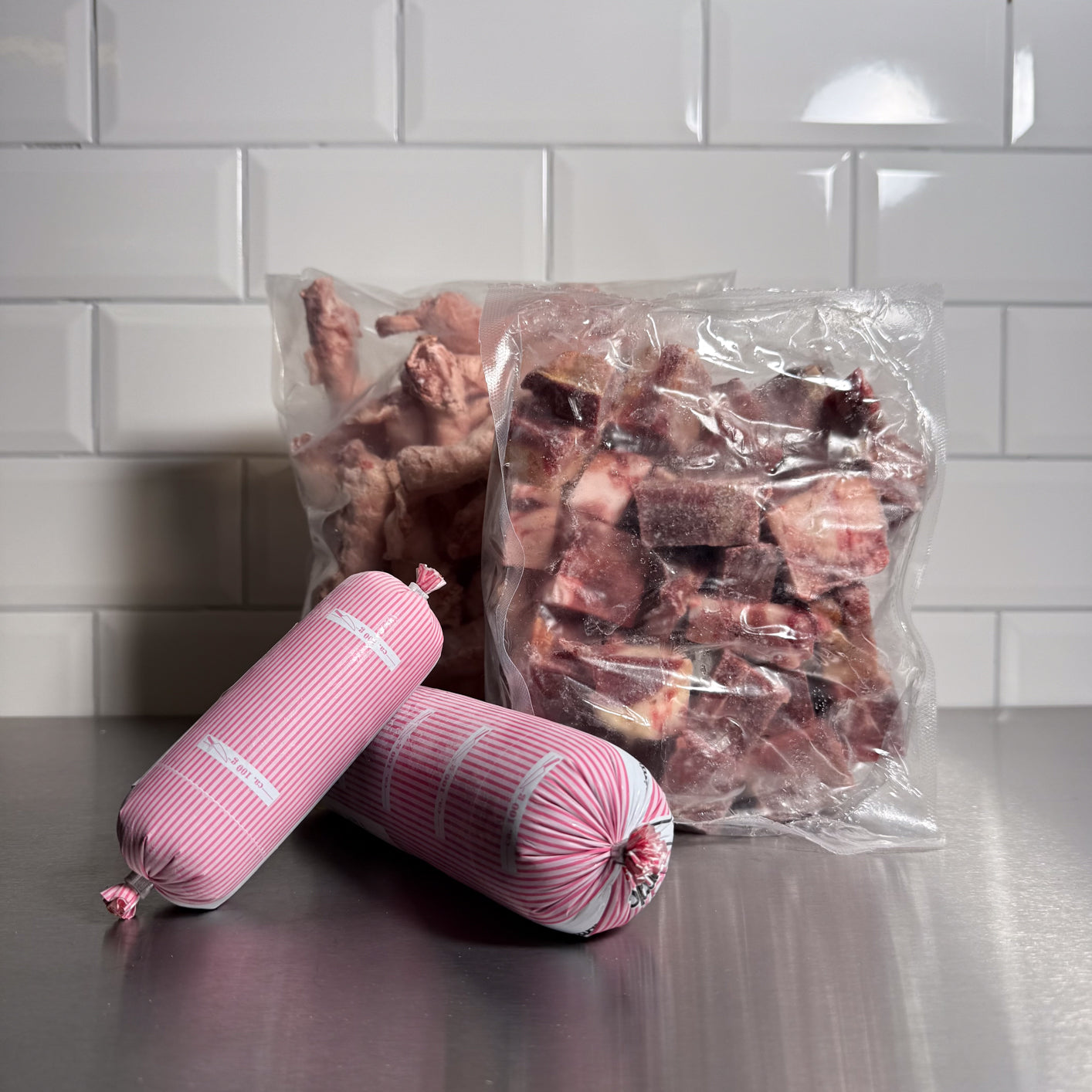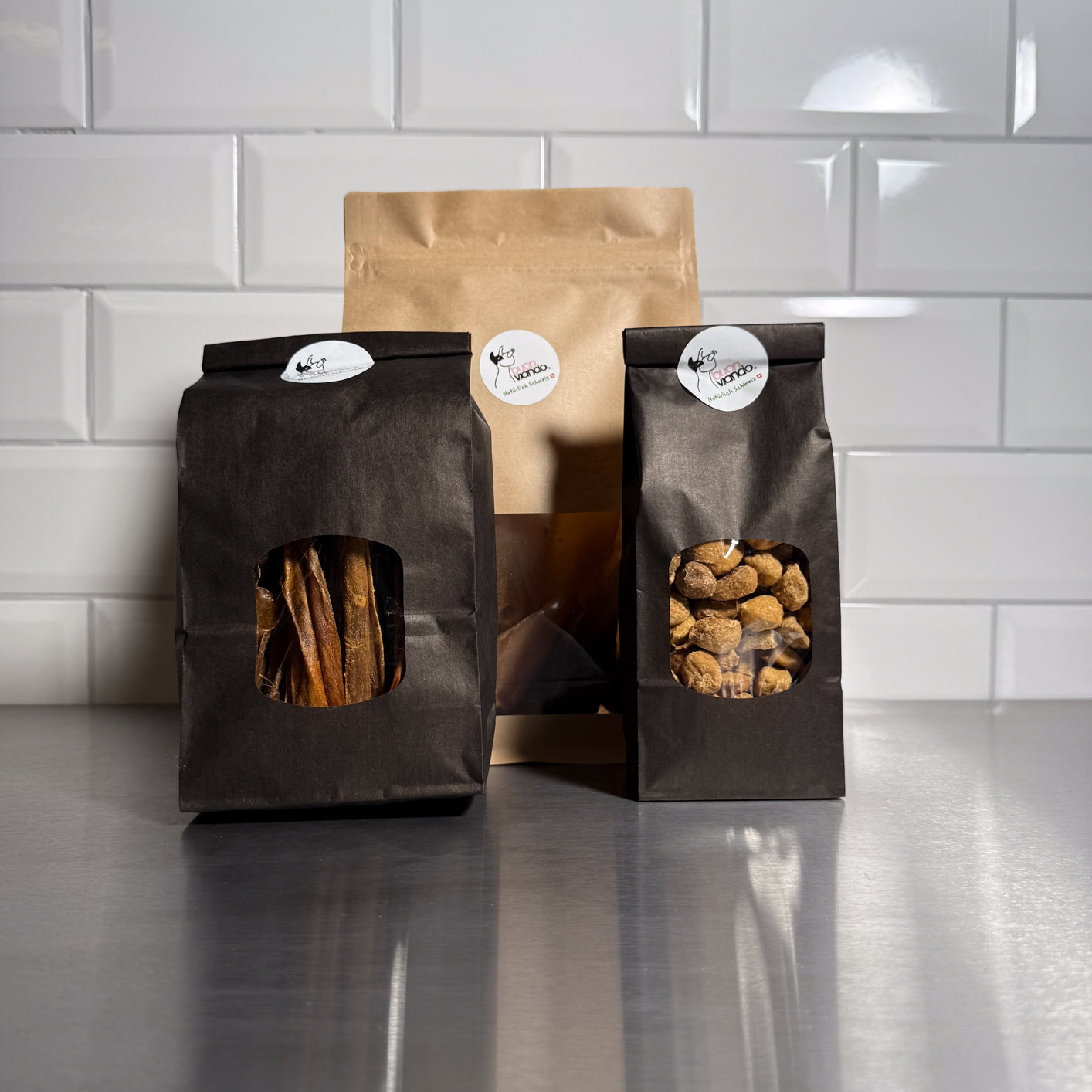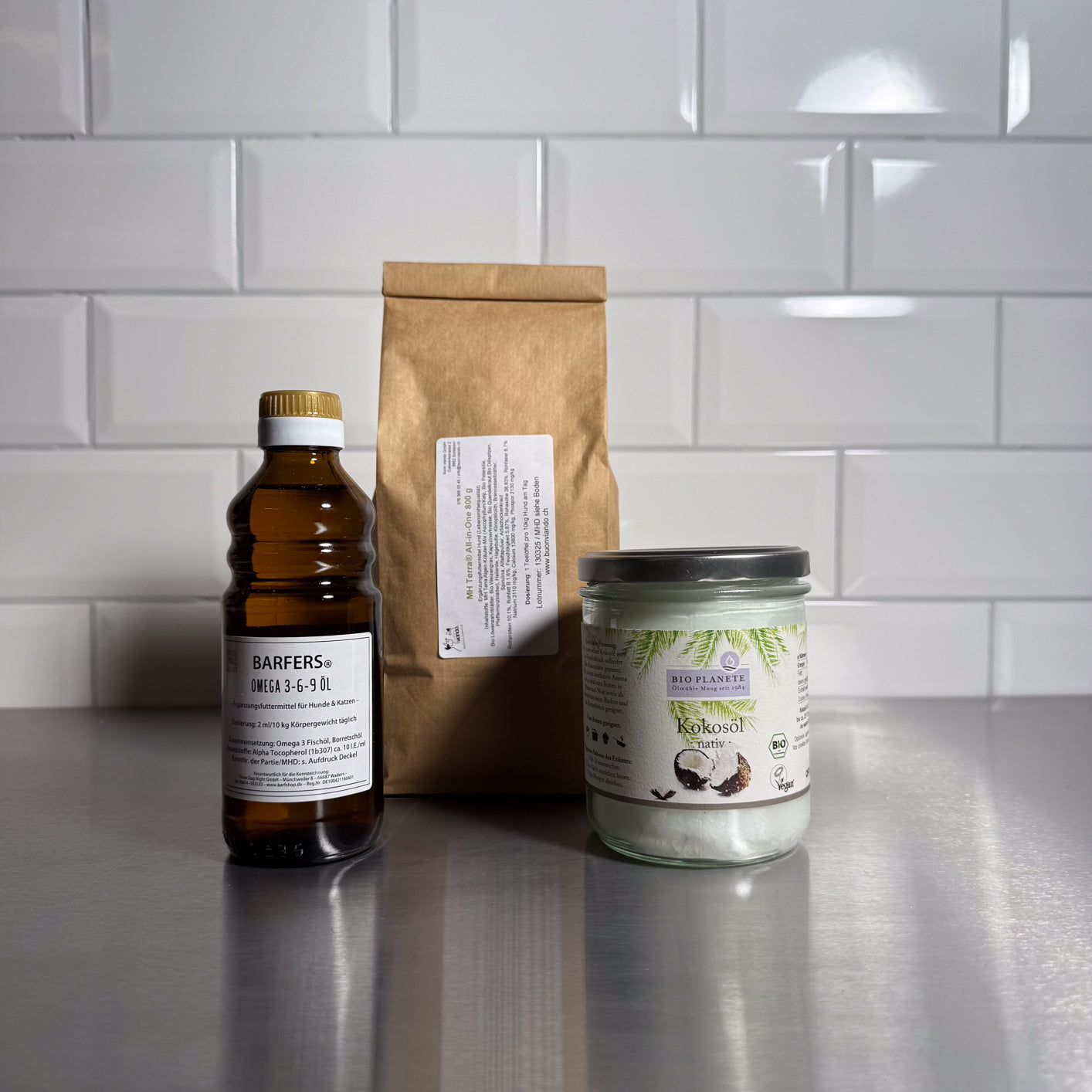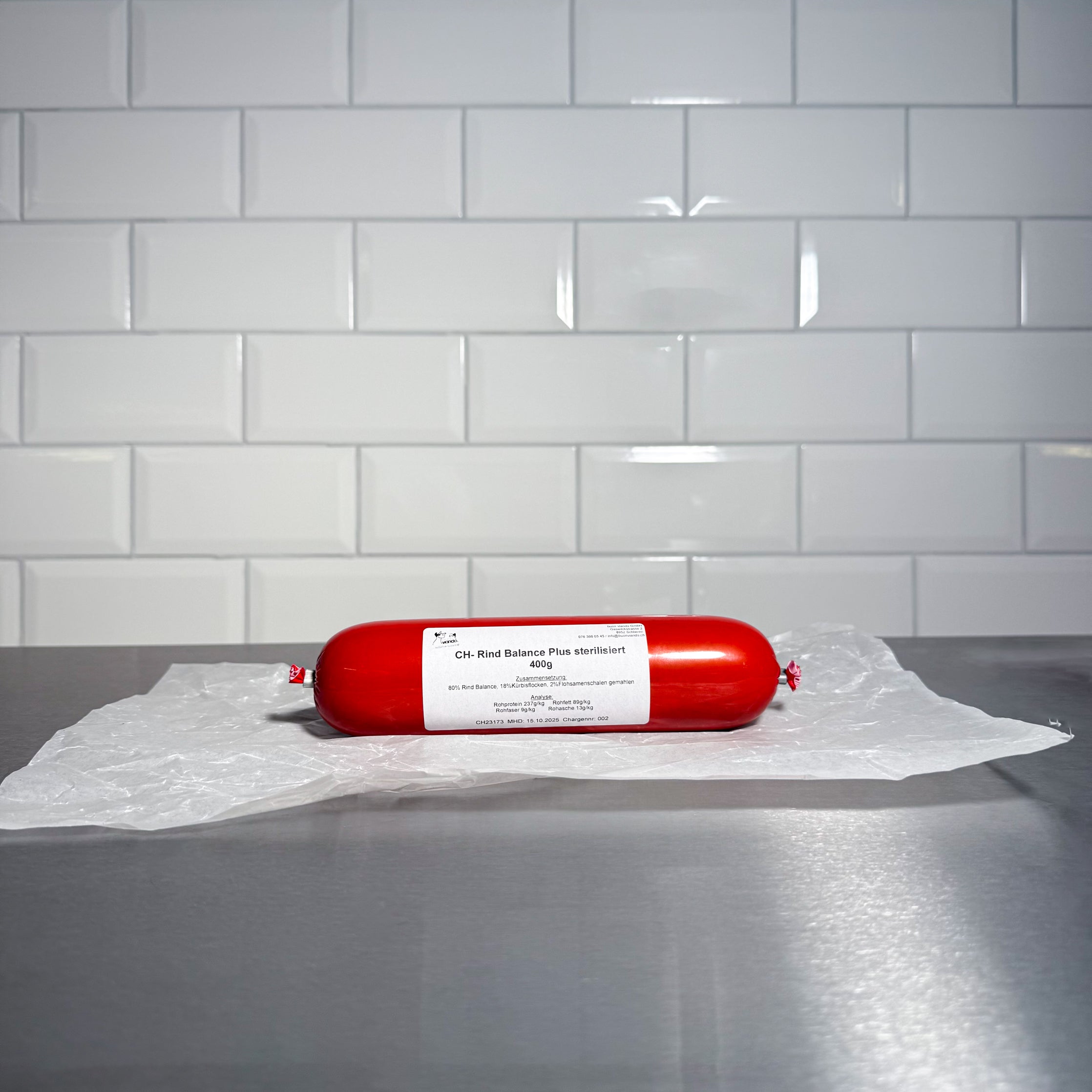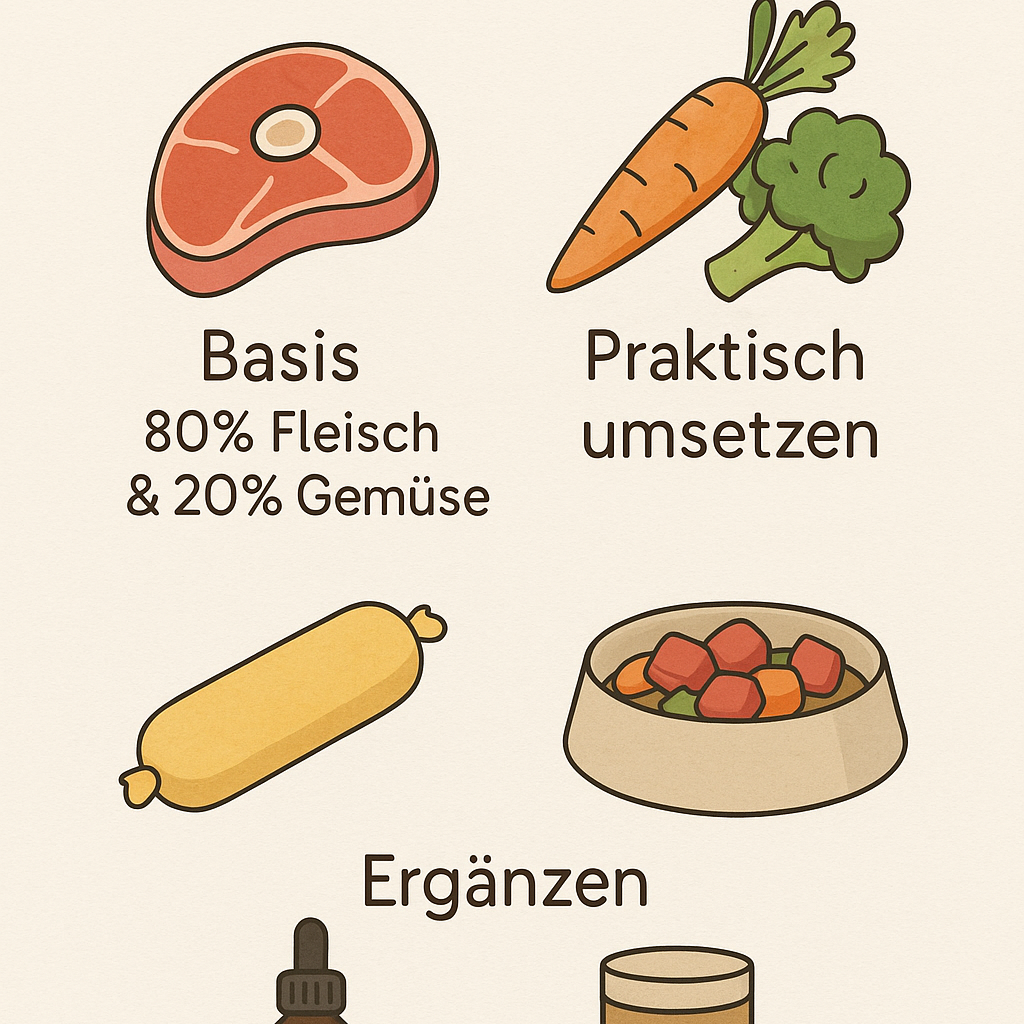Nuts in the BARF diet
Nuts are rich in unsaturated fatty acids, vitamins, and minerals. They can be a useful supplement, especially for dogs with increased energy needs.
Suitable Nuts for Dogs
- Hazelnuts
Rich in vitamin E and B vitamins - Walnuts
Contain omega-3 fatty acids; Use only fresh, undamaged nuts, as mold can be toxic. - Coconut shreds/coconut flakes
Support digestion, gently cleanse the intestines, and promote nutrient absorption. - Cashews
Good source of magnesium and iron - Almonds (sweet)
Provide healthy fats and protein
Nuts to avoid
- Macadamia nuts
Toxic to dogs and cats - Bitter almonds
Contain hydrogen cyanide and are therefore toxic. - Moldy or rancid nuts
May contain harmful mycotoxins.
Feeding recommendations
Nuts should always be offered unsalted, unseasoned, and organic. To increase digestibility, it is recommended to finely grind or crush them. Feed in moderation, as nuts have a high fat content.
Dosage recommendation: 1-2g per body weight per week (spread over several meals)
And what about cats?
It's best to avoid nuts altogether for cats. Their digestive systems aren't designed to handle such vegetable fat sources, and the benefits are disproportionate to the risks. Many cats also show very low acceptance.
Seeds in the BARF Diet
Seeds can enrich the BARF diet with additional nutrients such as omega-3 fatty acids, fiber, and antioxidants. They promote digestion and can support the immune system.
Suitable Seeds for Dogs and Cats
- Flaxseeds
Rich in omega-3 fatty acids and fiber; supports digestion
- Chia Seeds
High in omega-3 fatty acids and antioxidants - Pumpkin Seeds
Contain zinc and magnesium; can be popular with dogs and cats - Sunflower Seeds
Provide vitamin E and B vitamins - Sesame Seeds
Good source of calcium and magnesium
Feeding Recommendations
Seeds should be ground or soaked before feeding to improve nutrient absorption. They can be mixed into food in small amounts. However, caution is advised with cats, as they are often less able to digest plant components.
Feeding Instructions for Nuts and Seeds
Moderation
Due to their high fat content, nuts and seeds should only be fed occasionally and in small quantities.
Individual Tolerance
Not every dog or cat tolerates nuts and seeds equally well. Observe your pet after feeding for possible intolerances.
Preparation
To increase digestibility, nuts and seeds should be ground, finely chopped, or soaked, depending on the situation.
Quality
Always use fresh, unsalted, and unseasoned organic products.
Conclusion
Nuts and seeds can be a valuable addition to a dog's BARF diet if they are carefully selected and fed in appropriate amounts. Due to their specific nutritional needs, caution is advised with cats. It is important to inform yourself about the specific properties of nuts and seeds and to consider your pet's individual needs and tolerance.

